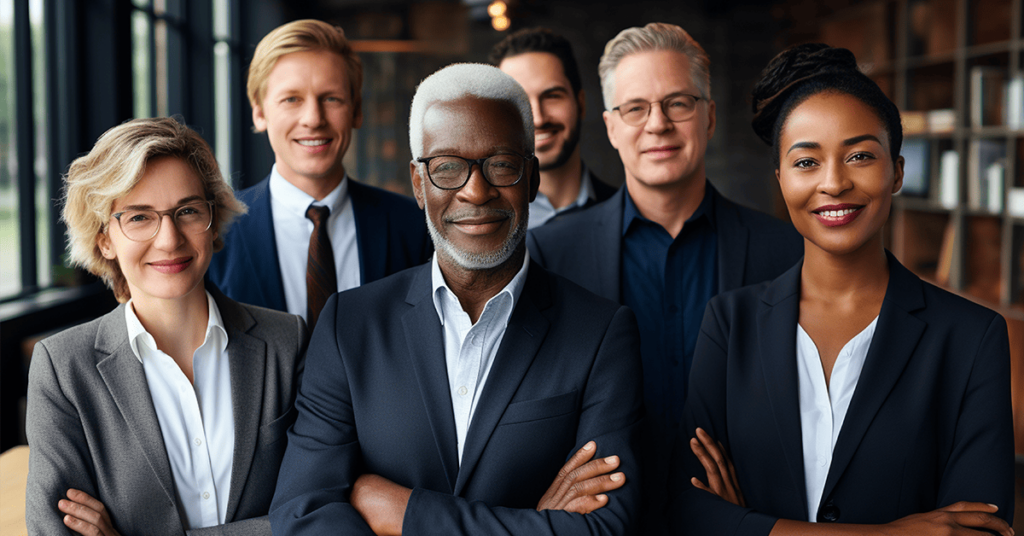
By: Prof Ojo Emmanuel Ademola – As we navigate the rapidly evolving landscape of the global economy, the intersection of artificial intelligence (AI), cybersecurity, and generational dynamics has significant implications for the future of work and sustainability. In Global South Nations, where economic development remains a key priority, engaging with each generation effectively is essential for fostering robust economic growth and sustainability initiatives. This piece delves into the strategies for engaging with Baby Boomers, Gen X, Millennials, and Gen Z to drive economic development and sustainability in Global South Nations, considering the transformative potential of AI, cybersecurity, and the unique values and preferences of each generation.
How do the expectations of each generation shape their approach to economic development and sustainability in Global South Nations? Let’s delve into the diverse perspectives and potential implications from different generational cohorts as follows:
1. Baby Boomers (born approximately 1946-1964):
– Expectations: Baby Boomers value job stability and loyalty. They may prefer a more traditional work environment with a clear hierarchy and designated leadership roles. They often prioritize job security, stability, and retirement benefits. They may also value face-to-face communication and prefer working in a structured and formal manner.
2. Generation X (born approximately 1965-1980):
– Expectations: Generation X tends to value work-life balance and autonomy. They appreciate flexibility in their work schedule and may prefer a more hands-off management style. They value learning and development opportunities and expect a fair work environment where performance is recognized and rewarded. Generation X also values job security but may be more open to changing jobs if they feel stagnant in their current position.
3. Millennials (born approximately 1981-1996):
– Expectations: Millennials prioritize meaningful work, growth opportunities, and a flexible work environment. They value work culture and a sense of purpose in their job. Millennials are tech-savvy and may prefer remote work options or a more fluid work schedule. They appreciate regular feedback and recognition for their contributions. They also value diversity and inclusion in the workplace.
4. Generation Z (born approximately 1997-2012):
– Expectations: Generation Z seeks a work environment that offers opportunities for personal and professional growth. They value flexibility, innovation, and creativity in their job. Generation Z is the first generation to grow up entirely in a digital age, so they are comfortable with technology and may prioritize work-life integration. They also value diversity and sustainability in the workplace and expect transparent communication from their employers.
It is important to note that these are generalizations and individual expectations may vary within each generation. By understanding these generational differences, employers can create a more inclusive and supportive work environment for all employees.
In an era defined by rapid technological advancements, how do AI and Cybersecurity influences shape the evolving expectations of different generational cohorts in the workforce? Delve into the implications for the future of work and sustainability in the digital age as we navigate through this intricate intersection.
Indeed, AI and cybersecurity are two important aspects shaping the future of work in the digital age. These technologies have a significant impact on the expectations of each generation at work and play a crucial role in ensuring sustainability in the workplace. Let’s explore how AI and cybersecurity influence the expectations of Baby Boomers, Gen X, Millennials, and Gen Z:
1. Baby Boomers:
– AI: Baby Boomers may approach AI with a mix of scepticism and curiosity. They may view AI as a tool that can streamline processes and increase efficiency in the workplace. However, they may have concerns about its impact on their job security and the need for upskilling to adapt to AI-powered technologies.
– Cybersecurity: Baby Boomers may prioritize cybersecurity measures to protect sensitive data and information. They may value a strong cybersecurity culture in the workplace to minimize the risk of cyber threats and data breaches.
2. Generation X:
– AI: Generation X is likely to embrace AI as a tool that can simplify tasks and improve productivity. They may expect AI to automate repetitive tasks and provide insights for better decision-making. Generation X may also seek opportunities for upskilling and professional development to leverage AI technology effectively.
– Cybersecurity: Generation X values data privacy and may expect robust cybersecurity measures to safeguard sensitive information. They may appreciate training programs on cybersecurity best practices and expect proactive measures to mitigate cyber risks.
3. Millennials:
– AI: Millennials are digital natives who are comfortable with AI technology. They may expect AI-powered tools to enhance collaboration, communication, and creativity in the workplace. Millennials may also prioritize ethical AI practices and transparency in the use of AI algorithms.
– Cybersecurity: Millennials recognize the importance of cybersecurity in a hyper-connected world. They may value agile cybersecurity strategies that adapt to evolving threats and expect organizations to prioritize data protection and privacy.
4. Generation Z:
– AI: Generation Z has grown up in an AI-driven world and is likely to embrace AI technology with enthusiasm. They may expect AI to personalize experiences, automate routine tasks, and enhance innovation in the workplace. Generation Z may also advocate for AI governance and responsible AI use.
– Cybersecurity: Generation Z is aware of cybersecurity risks and may prioritize digital security in their work environment. They may expect organizations to invest in advanced cybersecurity technologies, provide cybersecurity training, and promote a cybersecurity-conscious culture.
Coherently, AI and cybersecurity are key drivers shaping the future of work and influencing the expectations of each generation at work. Employers need to understand these generational perspectives to implement sustainable practices that leverage AI technology effectively and prioritize cybersecurity to ensure a safe and secure work environment in the digital age. By aligning with the expectations of different generations and fostering a culture of continuous learning and adaptation, organizations can thrive in the evolving digital landscape.
How can tailored strategies for engaging with diverse generational perspectives drive impactful economic development and sustainability efforts in Global South nations? Explore the potential avenues for fostering collaboration and innovation that transcend generational boundaries, paving the way for a more resilient and prosperous future.
Appropriately, to foster robust economic development and sustainability in Global South Nations, it is important to engage with each generation effectively. Here are some strategies for engaging with Baby Boomers, Gen X, Millennials, and Gen Z in Global South Nations:
1. Baby Boomers:
– Recognize their experience and expertise: Baby Boomers have a wealth of experience and knowledge that can be leveraged for economic development initiatives. Engage with Baby Boomers by valuing their expertise and providing opportunities for mentorship and leadership roles.
– Encourage knowledge transfer: Create platforms for knowledge-sharing and capacity-building where Baby Boomers can pass on their skills and insights to younger generations. This can help bridge the generational gap and foster continuity in economic development efforts.
2. Generation X:
– Provide leadership opportunities: Gen X individuals often seek leadership roles and opportunities to make a meaningful impact. Engage with Generation X by offering leadership development programs, project management roles, and decision-making responsibilities in economic development projects.
– Foster work-life balance: Generation X values work-life balance and flexibility. Create policies and programs that support a healthy work environment, including flexible work hours, remote work options, and wellness initiatives.
3. Millennials:
– Embrace digital transformation: Millennials are tech-savvy and digital natives who can drive innovation and digital transformation in Global South Nations. Engage with Millennials by incorporating technology into economic development initiatives, such as digital skills training, e-commerce platforms, and online marketplaces.
– Promote sustainability and social impact: Millennials prioritize sustainability and social responsibility. Involve Millennials in sustainable development projects, green initiatives, and social enterprises that address environmental and social challenges in Global South Nations.
4. Generation Z:
– Empower youth entrepreneurship: Generation Z is entrepreneurial and eager to create change. Engage with Generation Z by supporting youth entrepreneurship programs, startup incubators, and access to financing for innovative business ideas.
– Foster diversity and inclusion: Generation Z values diversity and inclusivity. Create inclusive policies and initiatives that empower marginalized groups, promote gender equality, and celebrate cultural diversity in economic development projects.
Overall, engaging with each generation effectively involves understanding their values, priorities, and preferences to create inclusive and sustainable economic development strategies in Global South Nations. By leveraging the unique strengths and perspectives of Baby Boomers, Gen X, Millennials, and Gen Z, organizations and policymakers can drive robust economic growth, promote sustainability, and empower future generations to thrive in the global economy.
In conclusion, effective engagement with each generation is crucial for fostering robust economic development and sustainability in Global South Nations. By recognizing the expertise of Baby Boomers, providing leadership opportunities for Gen X, embracing digital transformation with Millennials, and empowering youth entrepreneurship with Generation Z, organizations and policymakers can harness the diverse strengths and perspectives of different generations to drive inclusive and sustainable economic growth. As we navigate the digital age and the challenges of tomorrow, it is imperative to prioritize intergenerational collaboration, innovation, and diversity to ensure a prosperous and sustainable future for all in the Global South Nations.









